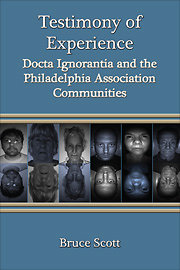On Psychoanalysis
The ideas and thoughts below describe what influences my practice of psychoanalysis.
True or authentic psychoanalysis or psychoanalytic psychotherapy is an open-ended conversation with no agenda and no time limit (i.e. number of sessions). The practice of psychoanalysis attends to the person who comes for analysis, to listen and witness their concerns, and to facilitate, if possible some kind of loosening of the strictures than bind and contort experience.
I work with people with different needs who are sufferring from mental distress. I have experience of working with people suffering anxiety, domestic abuse, depression, addiction, panic attacks, phobias, obsessive compulsive disorder, psychosis and schizophrenia type disorders. I also work with people who have feelings of low confidence, motivation issues, academic difficulties and helping people with the psychological transition/challenges of coming off antidepressant medication (e.g., SSRI's; e.g., prozac, seroxat, citalopram etc). However, one has to reliase that many labels, from a true psychoanalyitic perspective (of "disorders" or "mental health" issues) are very problemtic. These labels are often weaponised and overused which can confuse true undertanding of what is going on.
"The psychotherapeutic relationship is therefore a re-search. A search constantly reasserted and reconstituted for what we have lost, and which some can perhaps endure a little more easily than others. True, in the enterprise of psychotherapy there are regularities, even institutional structures, pervading the sequence, rhythm and tempo of the therapeutic situation viewed as a process.... But the really decisive moments in psychotherapy, as every patient or therapist who has ever experienced them knows, are unpredictable, unique, unforgettable, always unrepeatable, and often indescribable." R.D. Laing, Psychiatrist and Psychoanalyst; Politics of Experience and the Bird of Paradise, 1967, p47.
--------------------------------------------------------------------------------------------------------------------------
Unconcealment and Radical or Authenitic Psychoanalysis
In Heidegger’s terms, unconcealment (aletheia) refers to the process by which Truth reveals itself—not as factual correctness, but as the emergence of what was previously hidden. Applied to radical psychoanalysis, this notion transforms the therapeutic encounter from an interpretive search for causes (as in classical Freudian analysis) into an event of revelation. The unconscious is not a storehouse of repressed content to be decoded, but a site of disclosure—a clearing in which aspects of Being come to presence through speech, silence, and affect.
The consulting room is this clearing.
Where traditional psychoanalysis “explains,” radical psychoanalysis listens—not for meaning imposed by theory, but for the ways in which Being speaks through the subject’s discourse. The analytic process thus mirrors Heidegger’s “leap” into thinking: both require the analyst and analysand to suspend the dominance of common sense and conceptual frameworks, allowing what is concealed to reveal itself in its own way.
In this light, psychoanalysis becomes a form of existential unconcealment—a space where the subject confronts not only unconscious desires but the fundamental question of what it means to be. The truth that emerges is not manufactured, interpreted, or verified; it happens as an event of openness between two beings engaged in authentic dialogue.


